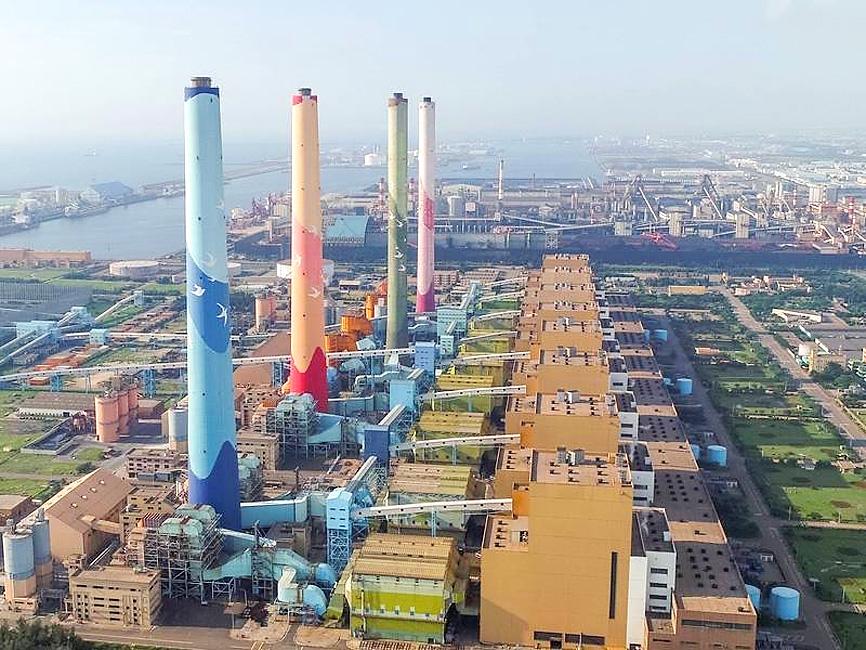The Executive Yuan is seeking to implement core infrastructure redundancy to provide emergency electricity, gas and communications in the event that primary systems are destroyed in an attack, a person familiar with the matter said.
The government is considering amendments to the Executive Yuan Internal Affairs Procedural Regulations (行政院處務規程) to allow it to transfer 10 or more staff to the Office of Homeland Security, which would oversee a core infrastructure redundancy program, the source said on condition of anonymity.
Under office director Ho Ta-jen (何達仁) and supervised by Minister Without Portfolio Wu Tze-cheng (吳澤成), the office would seek to implement redundancy systems for water, electricity, crude oil and the transaction system for the financial markets, they said.

Photo courtesy of the Taichung City Government
The Executive Yuan expects to dedicate the year to implementing redundancy systems and would inspect the results at the end of the year, they said.
The goal of the program is to create a backup or alternative system that would turn on in the event of infrastructure failures, either due to an external attack or hacking, they said.
The government also intends to create a backup system for the Taiwan Stock Exchange, so that it could be immediately restarted to minimize losses should it be paralyzed in a cyberattack, they said.
The office, working with the National Center for Cyber Security Technology, is already tasked with around-the-clock surveillance of key infrastructure facilities, they added.

‘DENIAL DEFENSE’: The US would increase its military presence with uncrewed ships, and submarines, while boosting defense in the Indo-Pacific, a Pete Hegseth memo said The US is reorienting its military strategy to focus primarily on deterring a potential Chinese invasion of Taiwan, a memo signed by US Secretary of Defense Pete Hegseth showed. The memo also called on Taiwan to increase its defense spending. The document, known as the “Interim National Defense Strategic Guidance,” was distributed this month and detailed the national defense plans of US President Donald Trump’s administration, an article in the Washington Post said on Saturday. It outlines how the US can prepare for a potential war with China and defend itself from threats in the “near abroad,” including Greenland and the Panama

A magnitude 4.9 earthquake struck off Tainan at 11:47am today, the Central Weather Administration (CWA) said. The hypocenter was 32.3km northeast of Tainan City Hall at a depth of 7.3km, CWA data showed. The intensity of the quake, which gauges the actual effect of a seismic event, measured 4 in Tainan and Chiayi County on Taiwan's seven-tier intensity scale, the data showed. The quake had an intensity of 3 in Chiayi City and County, and Yunlin County, while it was measured as 2 in Kaohsiung, Nantou County, Changhua County, Taitung County and offshore Penghu County, the data showed. There were no immediate reports of

The Chinese Nationalist Party (KMT) is maintaining close ties with Beijing, the Democratic Progressive Party (DPP) said yesterday, hours after a new round of Chinese military drills in the Taiwan Strait began. Political parties in a democracy have a responsibility to be loyal to the nation and defend its sovereignty, DPP spokesman Justin Wu (吳崢) told a news conference in Taipei. His comments came hours after Beijing announced via Chinese state media that the Chinese People’s Liberation Army’s Eastern Theater Command was holding large-scale drills simulating a multi-pronged attack on Taiwan. Contrary to the KMT’s claims that it is staunchly anti-communist, KMT Deputy

RESPONSE: The government would investigate incidents of Taiwanese entertainers in China promoting CCP propaganda online in contravention of the law, the source said Taiwanese entertainers living in China who are found to have contravened cross-strait regulations or collaborated with the Chinese Communist Party (CCP) could be subject to fines, a source said on Sunday. Several Taiwanese entertainers have posted on the social media platform Sina Weibo saying that Taiwan “must be returned” to China, and sharing news articles from Chinese state media. In response, the Mainland Affairs Council (MAC) has asked the Ministry of Culture to investigate whether the entertainers had contravened any laws, and asked for them to be questioned upon their return to Taiwan, an official familiar with the matter said. To curb repeated